
Issue 11
June 2022
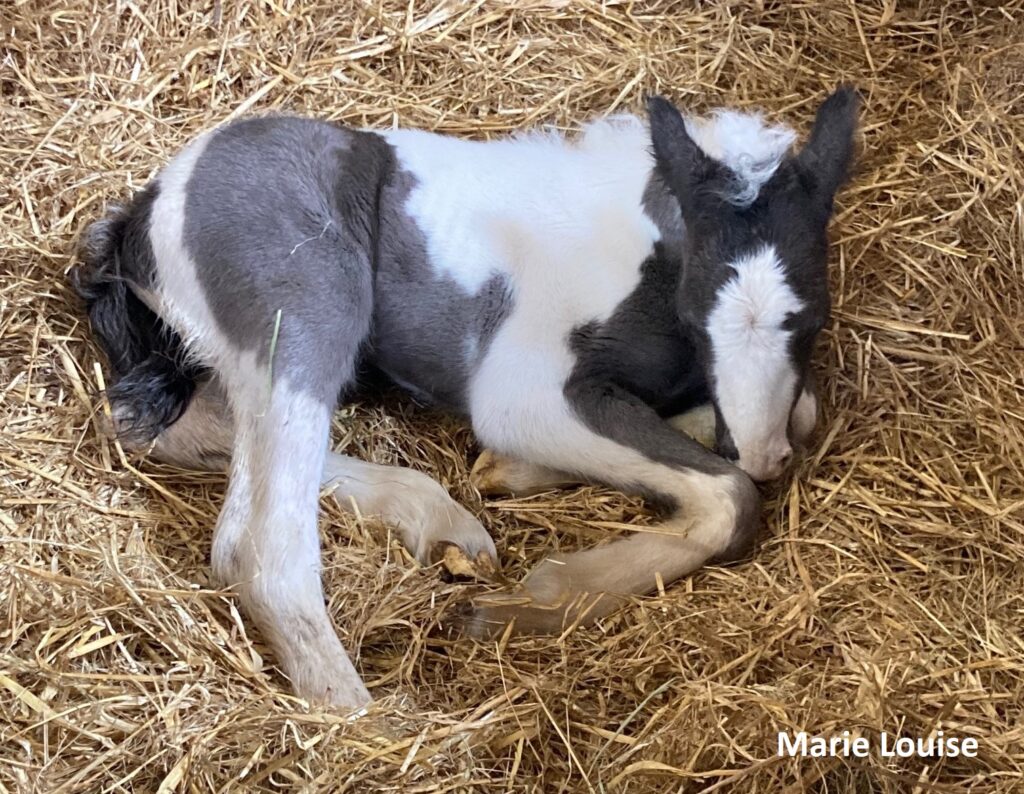
Hello and welcome to the June issue of the My Lovely Horse Rescue Newsletter!
Those long lazy afternoons are a tonic! It does the heart good to see the horses, donkeys and goats and pigs chilling out long into evenings. Seeing the animals in our care so content and relaxed makes all the challenges we face worthwhile.
In May we took 14 animals into our care and 10 animals were adopted! We are in the midst of a baby boom with 6 foals were born in our care in May. At the main MLHR farm we welcomed Marie Louise, Amalie and Darcy while our Cork farmies welcomed Mosley, Felix, and Reilly. Mums and babies are all doing well. We have more pregnant mares due to give birth very soon and they are receiving the best antenatal care in our pregnancy pen with extra nutrient-rich feeds which help, among other things, to support colostrum quality and milk production.
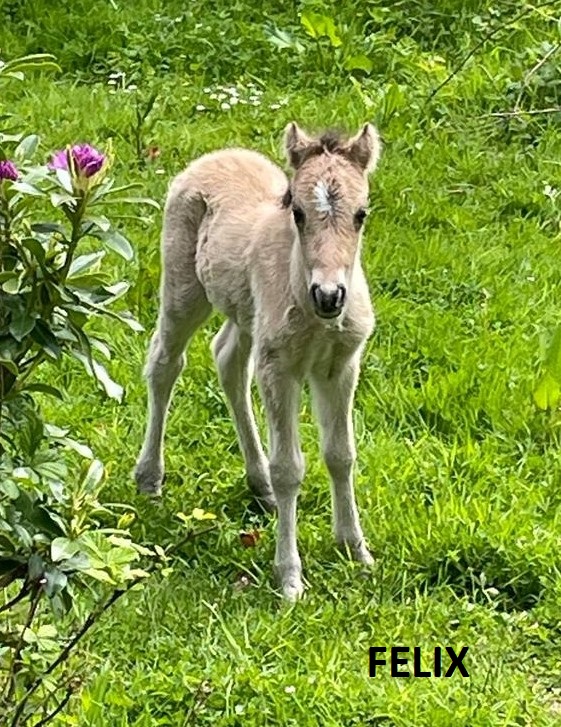
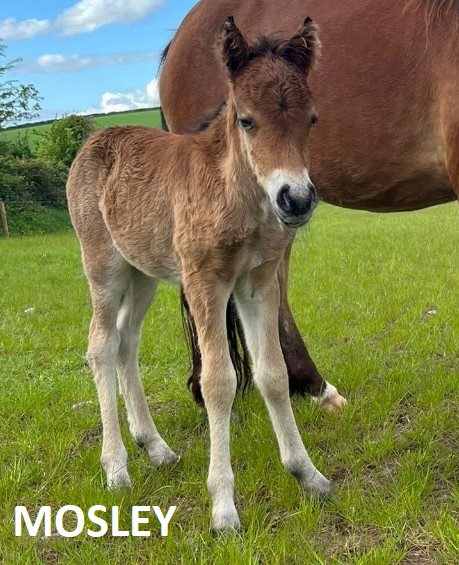
At the main MLHR farm, our wonderful team has been dismantling old fencing and foal-proofing the paddock that will soon become My Lovely Horse Rescue Créche. Every mare in our care will give birth in safety, in a clean, dry, cosy and warm stable. Every baby born to these mares will grow up in safety with nourishment from birth and free from mistreatment, neglect and abuse.
In May we rescued another 12 dogs from the pound, a mission made possible by our incredible supporters who shared our pleas on social media, offered to foster, or to provide food or financial support. The 12 dogs went straight to foster homes and they will be taking some time to decompress before they are ready to find their forever homes. Hot on the heels of this rescue came our third Adoption Day hosted by The Lazy Daisy Café in Cabra, Dublin 7 on 14 May – another meet and greet opportunity for 5 dogs in the care of My Lovely Dog Rescue. We are looking forward to sharing adoption news with you soon!
And so to June! In our Arrivals Lounge this month, we just had to feature a baby so we’ve chosen little Cairo who has just arrived in MLHR Cork, surrendered to us at only 3 weeks old, while over in our Departures Lounge, we have our lovely pigs Ciaran and Joe heading to their forever home and we say a sad farewell tribute to Oscar the pig. June’s Story of the Month features our little flock of rescue chickens who rarely get a look in on social media so we thought it time to introduce them to ye all
As we are now half-way through 2022 we thought we’d check in with the animals who have featured in our Day in the Life series over the last 6 months.
Summer plants and flowers are in full bloom but not all are suitable for consumption by animals. Our Did You Know? section this month looks at Ragwort and how to remove this threat from equine fields.
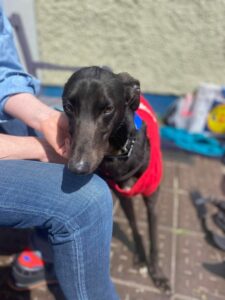
We have news from My Lovely Charity Shop and The Tack Shack and Behind the Scenes photos and videos from our rescue bases.
As always, we are here for the animals because you are here for us. Thank you so much for subscribing!

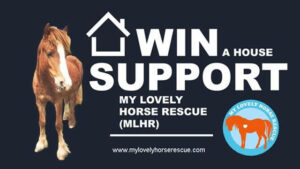


We all remember the tale of Chicken Licken, the daft little chicken who gets hit on the head by a falling acorn, thinks the sky is collapsing on him and runs around hysterically telling this to everyone before eventually being eaten by the clever fox.
When the tale of Chicken Licken was first being told in its earliest forms – some of which have been dated back over 2,000 years – chickens were still living their lives outside in the wild, doing what chickens do best, digging in the earth, pecking at the ground, making nests to lay their eggs and hatching and rearing their gorgeous, fluffy chicks. They were pretty much like any other bird out there. They had a couple of clutches of eggs yearly during the breeding season, 12 to 15 eggs in total, just the number their bodies were made to produce and just enough to ensure the survival of their kind. They lived 10 to 12 years in the wild, this of course depended mostly on the nearness of predators at any time. They raised their young as best they could and they lived pretty regular lives – for a chicken – and then they died, possibly like a lot of wild animals die, at the hands of other wild animals. No one said Nature was always kind after all.
Chicken Licken, were he alive today, would be living a very different life and have a very different story written about him. He most likely would not be able to do any of his hysterical running around, not having enough space on either side of him to go anywhere really. He wouldn’t even have felt the acorn drop on his head in the first place as there would be no open sky above him, just the roof of the huge enclosed industrial shed where he would be struggling to survive amongst thousands of his family and friends. His life would be short, either about 6 weeks if he was being bred for meat or 1 to 2 years if he was a she and being bred for laying eggs. Of course if he was a boy and born in the layer hen factory then he would survive only a couple of hours before meeting a pretty gruesome death which I’m sure we all know about at this stage so I won’t go into the gory details here.
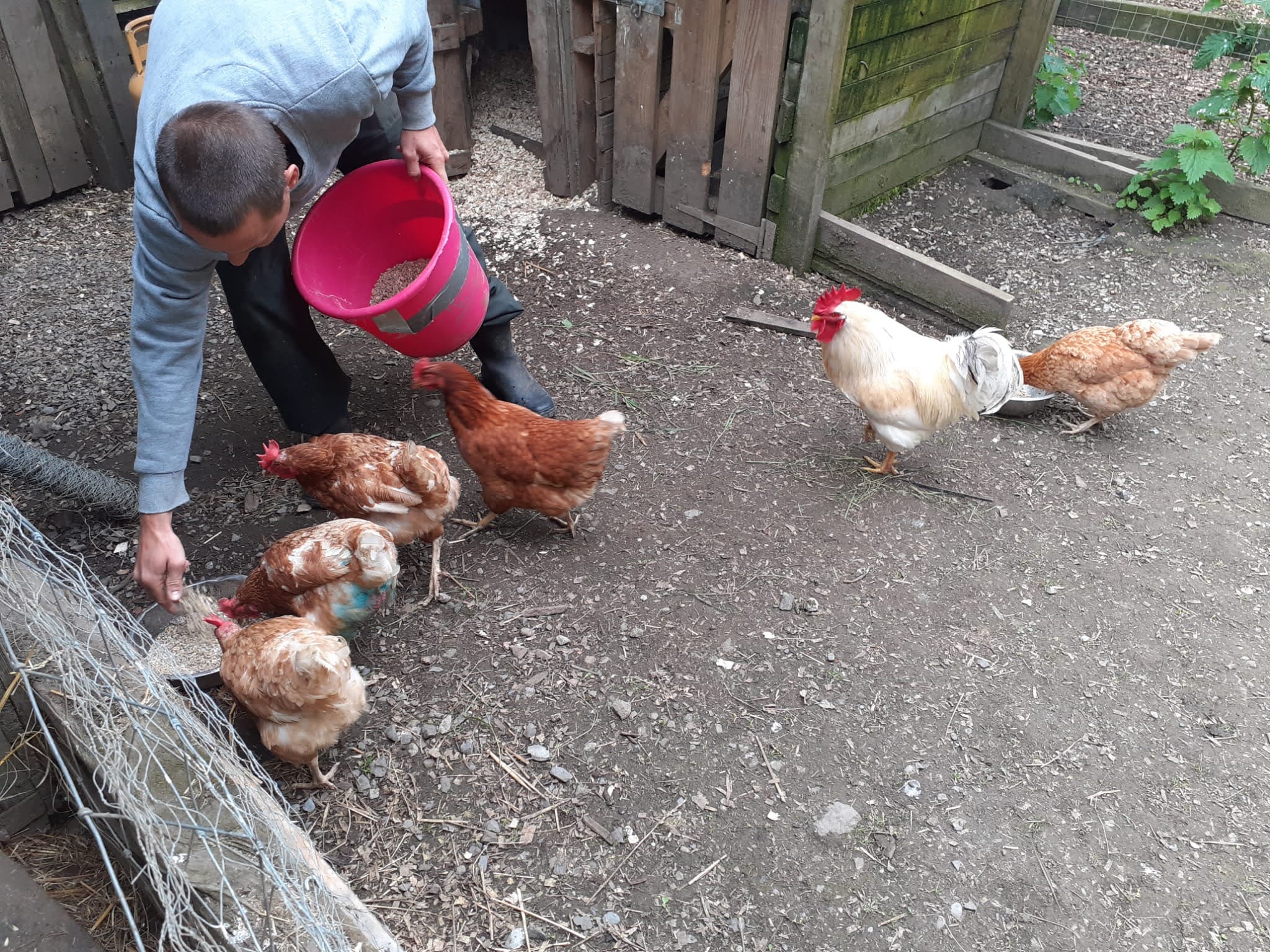
So what story would we have to tell our kids if we had to rely on modern chickens as our characters, a pretty sad one to be sure. All in all these clever, affectionate little birds don’t have it easy in the world today which is terrible as they are quite remarkable actually.
Chickens have complex social structures just like we do and just like us they know who is the boss of their group. They can distinguish between more than a hundred faces of other chickens which is a pretty big circle of friends these days for anyone not on Facebook.
They are very good parents, talking to their chicks before they even hatch so that the chick will know their voice and follow them straight away. They also defend their youngsters from predators so the whole idea of being scared as a chicken has no foundation whatsoever.
They dream, they love playing, they love dust baths and of course they have their own language. They also, like most animals and ourselves, enjoy a bit of sunbathing.
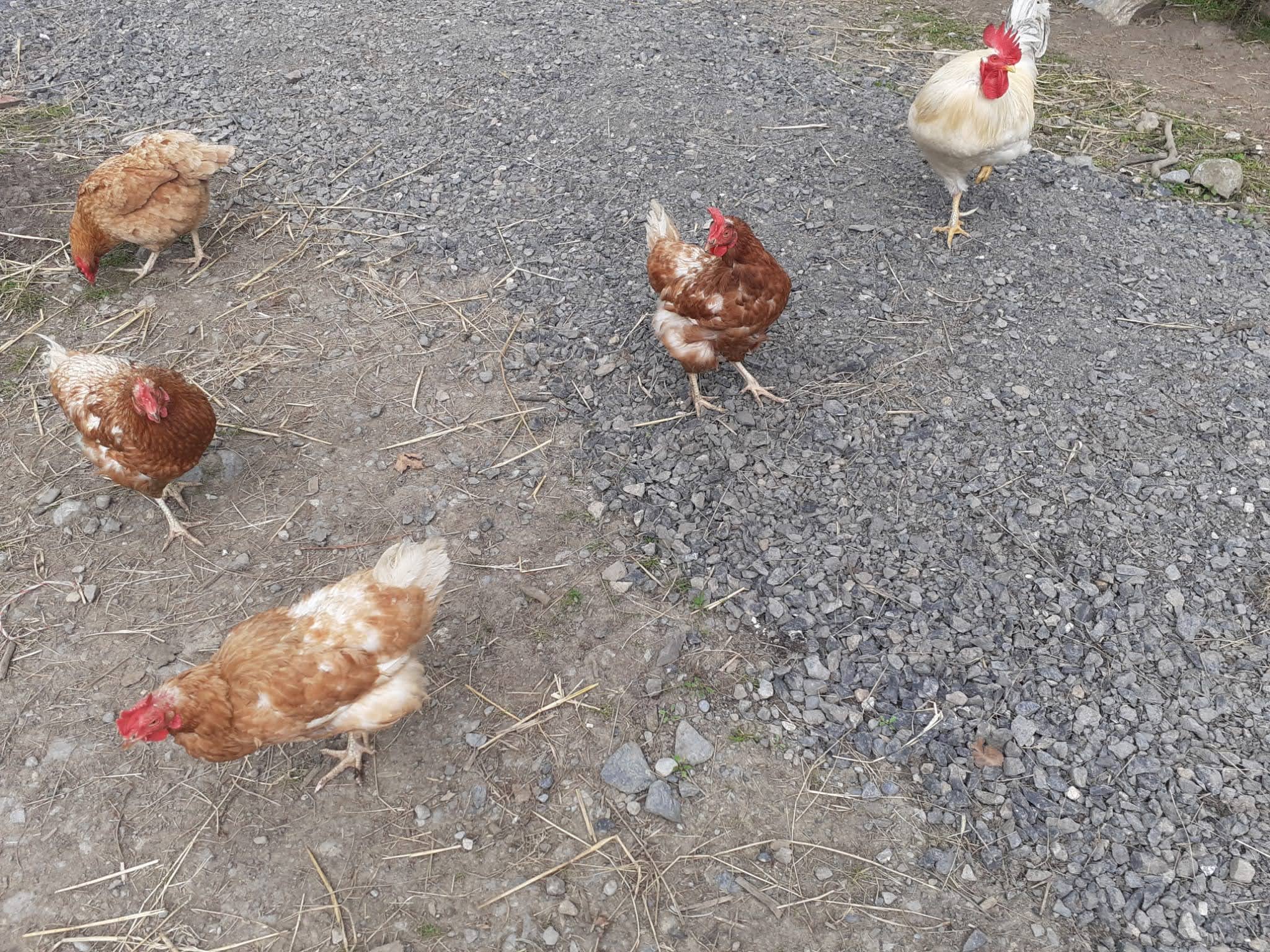
Over at My Lovely Pig Rescue (MLPR) we have a small flock of 5 rescue chickens presided over and looked after by their rooster Simon who was rescued from a garage in Clondalkin two years ago. He was quite the feisty individual when he arrived and would go for Cathy, our MLPR founder, anytime she came into the enclosure flying at her with his claws out. When you’re face off with a rooster, you have to make yourself seem as big as possible by grabbing the sides of your jacket and spreading your arms out wide like really gigantic wings. Simon would be going for Cathy and she would do this and obviously it would scare him. Simon though couldn’t lose face in front of his ladies so he had a plan to save his reputation. Each time he would look straight at Cathy for a moment, for as long as he dared, hop from foot to foot and then turn his head away quickly and imperiously as if he’d just remembered something really important he needed to do and off he’d head about his very important business as if totally in control of the situation.
He has settled in fabulously since then we’re relieved to say and loves his gang of girls – Cathy included! All his hens just dote on him too, gathering excitedly around him, helping to clean his wattles (the fleshy growth under his chin) and generally making him feel like he’s number one. When you go in with corn for everyone he will do a special dance around it on the ground and then step aside and let his women eat first. Our hens get calcium tablets every day and have their eggs fed back to them in an effort to help halt the rapid deterioration of their bones which constant laying produces.
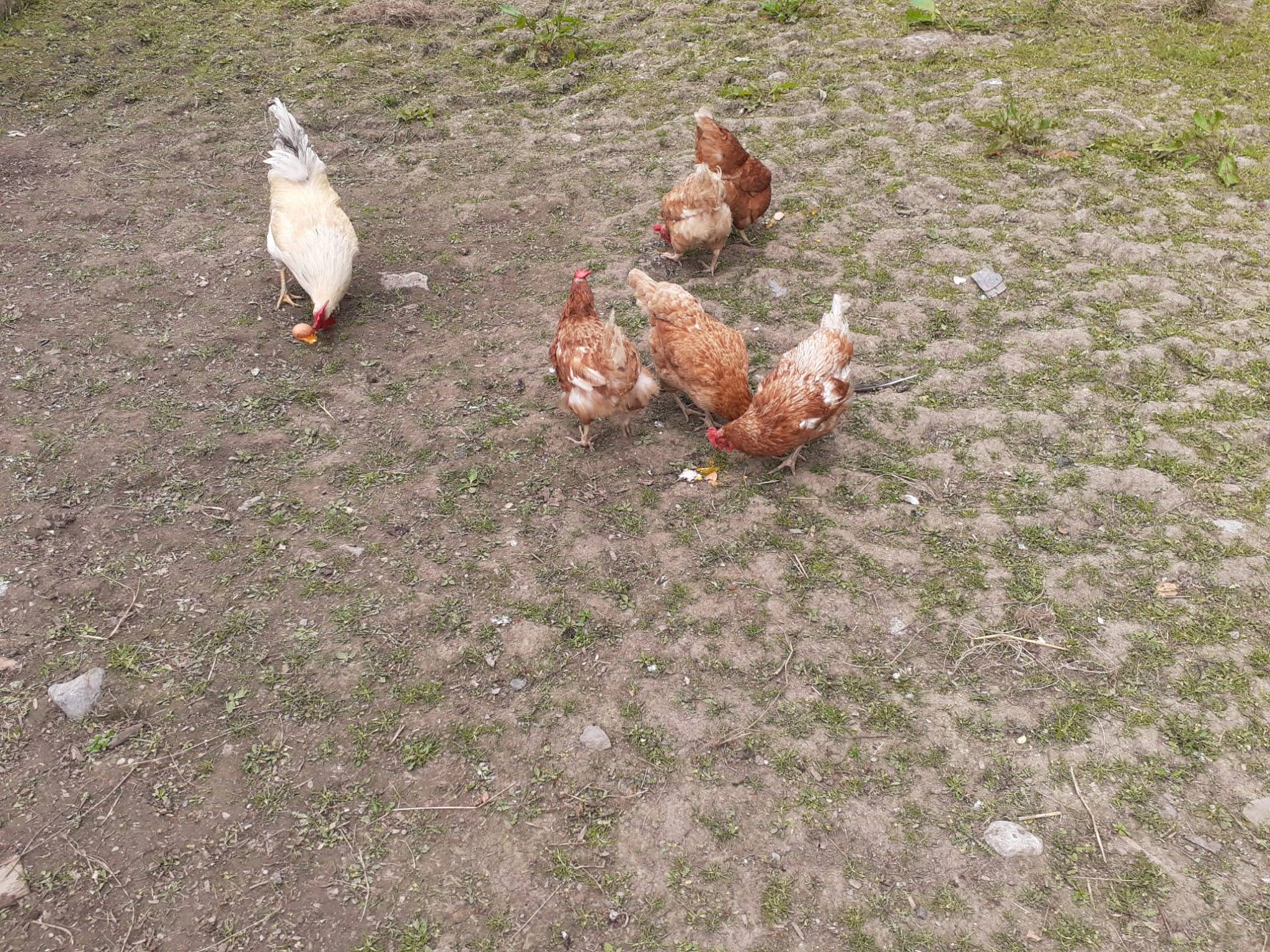
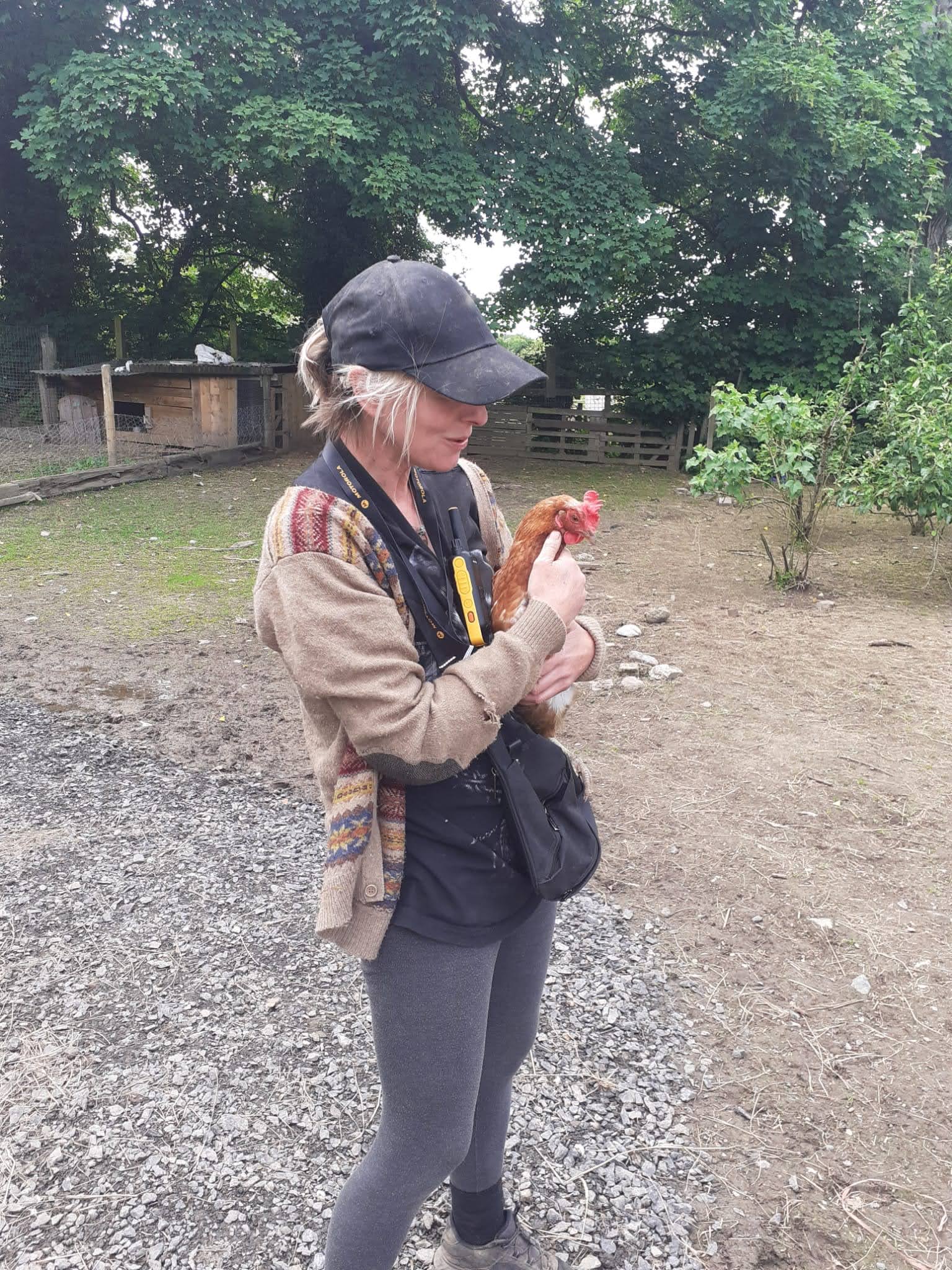
Rescue chickens often have health problems due to over laying like Tiny, our smallest hen. She came to us very fragile and sickly and was totally spoiled and petted by everyone. She was given her own little quarters at the start so none of the other hens might bully her and she came to love her human carers so much, especially Liam who was very kind to her. She had a lovely year with us and it was so cute to see her run up to you for hugs. One day she suddenly became very lethargic and Cathy gave her a warm bath as poor Tiny was egg-bound, a condition when an egg is trapped inside the oviduct. Hens often struggle to get enough nutrients to sustain the constant laying and so issues with the reproductive organs are all too common. Floppy, her companion, was also quite sick at the same time from an infection in her overworked reproductive system so Cathy brought them both into her house to care for. They had a little crate each to sleep in and would frolic in the garden during the day when they felt able. Those last few days were very happy for Tiny but she did not improve and very soon her comb turned blue which meant her circulation was compromised so the vet and Cathy decided the kindest thing was to let her go before she suffered too much. Her friend Floppy luckily pulled through.
The hen in the photos with blue antiseptic spray on her is Beau or Blue Bum Beau as she is known at present! She has ‘vent gleet’ a fungal infection involving the digestive and reproductive system but is responding well to treatment. The blue spray also helps to stop the other chickens from pecking at her poor swollen bum. You can also see Olive and Gus in the photos, two of our gentlest pigs ever whose house is near the hen enclosure. Sometimes the hens even fall asleep beside them.
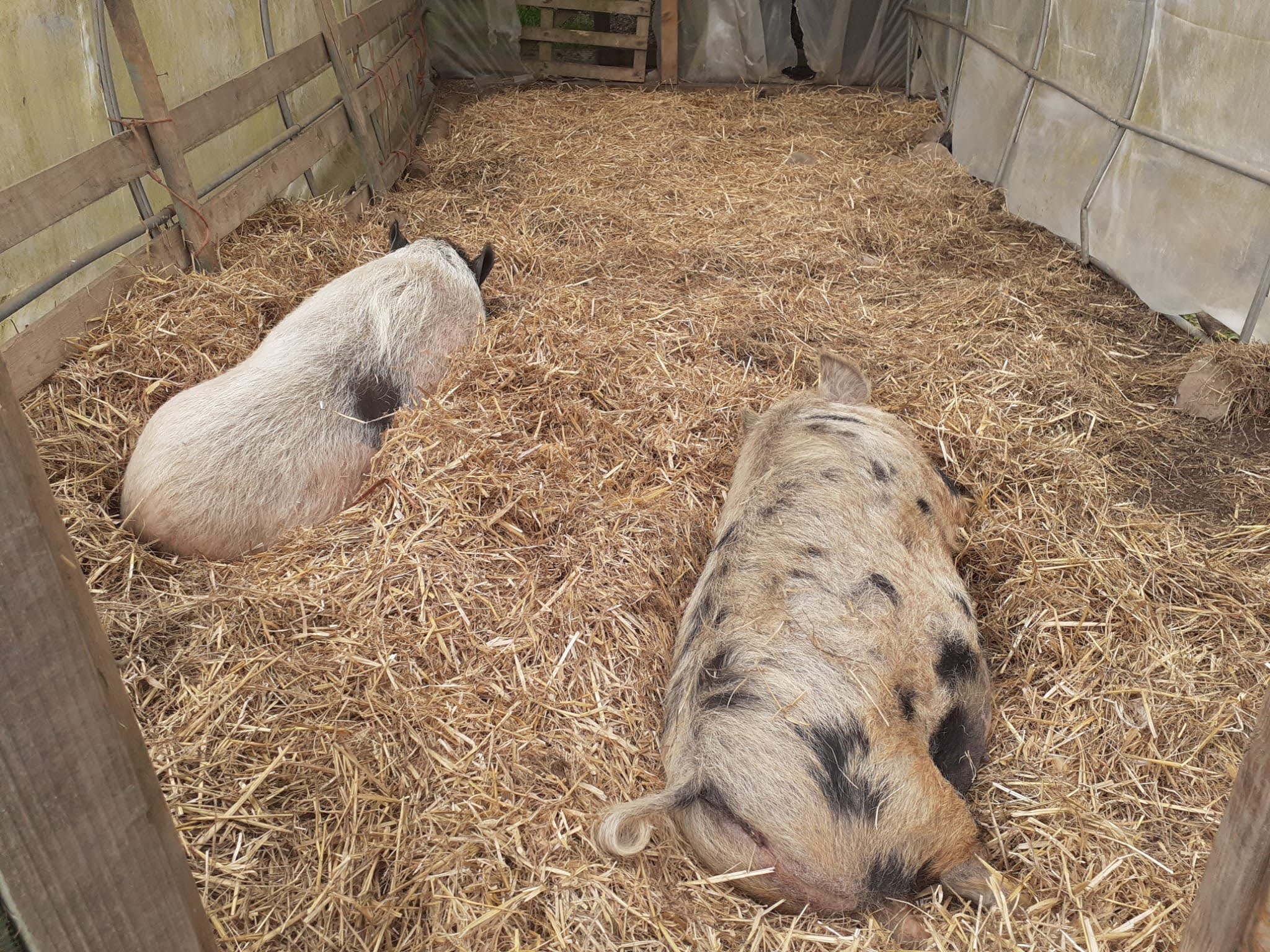
Chickens are just fab really and so funny to be around. So if you have the chance to get to know any chickens please do cos we know you will fall in love with them too and hopefully someday we can make life easier for all the chickens out there.
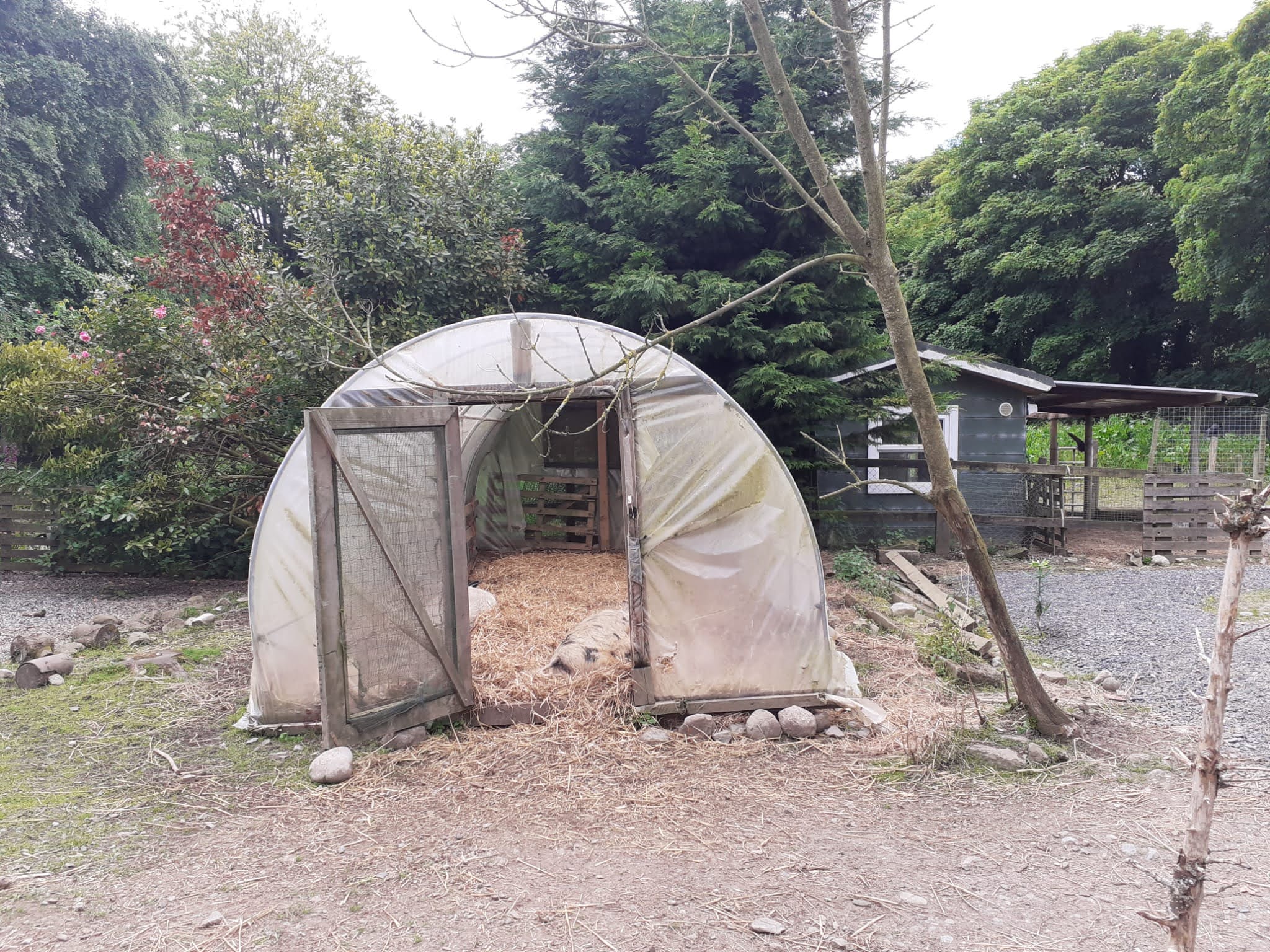

Arrivals – Cairo in MLHR Cork
It’s all about the babies at the moment, especially on the Cork farm where we’ve had three births already on the farm and two out on foster. All these newborns are from our herd of Kerry Bog ponies who we featured in last month’s edition.
As we were just getting used to all the new little ones Kelly, our Cork volunteer manager, got a call to say there was a three and a half week old foal who had just lost his mother and the owner needed help. At such a young age this foal would need bottle feeding and this just wasn’t possible where he was. So Kelly got in touch with her team and asked ‘are we on for bottle feeds lads?’ to which everyone replied ‘hell yes!’ Time is of the essence in these situations and foals can go downhill quickly if they miss a day or two of feed so Kelly and Jeannette, our other farm volunteer manager, raced with the horsebox to get him. Such a bonny wee lad he was when they arrived, not lethargic at all which is sometimes the way when they are so young. He loaded easily into the box and off home they went. Jeannete saw a wonderful rainbow in the sky as they drove and Kelly started looking up names to do with rainbows when she came across ‘Cairo’ which means victorious. That name just seemed perfect for him.
So everyone please welcome Cairo to the MLHR family. As you can see from the videos he is bright and bouncy, has the most beautiful eyes and is a gentle and happy wee chappy. He guzzled down his first bottle of foal milk replacement like a pro and he has been put in with Pinto, our long term resident rescue. Pinto is 20 years old and has helped raise so many of our youngsters in Cork. He was rescued at 12 years of age and most likely had a hard life upto then from what we know of where he came from. Yet he is the sweetest dude and his protective instincts towards younger horses is wonderful to watch. When Aslan, one of our rescues last year arrived, Pinto would stand over him as he slept in the field and the other mares with their young accepted Pinto into their herd as Aslan’s protector.
It’s vital for Cairo to have this parental figure. As humans we can only do so much and he will need the guidance and reassurance of an older horse. Pinto can’t feed him of course but Cairo sometimes gives it a good try anyway. Pinto just politely but firmly turns round on him as if to say ‘listen kid, I’m not your mother so lay off on that sucking crap but I will be your go to, your protector and your guide. Stick with me and I’ll show you what it is to be a real horse.’
What Pinto will provide Cairo with is love, protection, guidance and everything he needs to grow up a secure and happy little youngster. As Kelly says ‘I can feed Cairo but it’s Pinto who is impressing on him and that is vital for a young foal.’
The team is on roster now for feeds every three hours starting at 6am and upto 11pm. If he were younger he would need a night feed too but he’s old enough now and he’s in good health. He has hay and water and he has his Pinto.
In time he will go out to the field with Pinto. He will probably not go into where the Kerry bogs are as they are quite a clique and they might not accept him. Kelly feels he will probably head out to where the yearlings are because they all know and respect Pinto so they will know that Cairo is under his protection. Everyone on the farm knows that Pinto always protects the baby of the herd so little Cairo will find his place in the pecking order alongside his big friend.
For now we are so relieved that he is in good health and we can’t wait to watch him grow. He is certainly a frisky one already so it should be interesting to see what antics he will be getting up to in the coming weeks.
Departures – Ciaran & Joe
Ciaran and Joe are the most beautiful looking pigs. They are Oxford Sandy and Blacks, native to Oxforshire and one of the oldest British pig breeds. They are hardy and docile pigs who really love the outdoors where they are protected by their colour from sunburn which so many of our pink pigs suffer from. They were rescued at 6 months old by a kind lady in Kilkenny who takes in all manner of stray animals. She was approached to take in two small pigs and though she had no experience with pigs she kindly agreed to take them. Of course when they arrived they weren’t really that small and at 6 months old they turned out to be big and boisterous, even breaking out of the area she’d set up for them. Ensuring secure fencing is a common issue we find with people who try to keep pigs and other farm animals as pets. So this lovely lady who had tried to help them reached out to us and we gladly went to her aid.
Ciaran and Joe are very independent and self-sufficient pigs. They really don’t need us humans and don’t try too much to associate with us. Other pigs will make special noises for humans and be very happy to run to you for play and rubs. These two guys when they see you are more like ‘what do you have, what can you give us, grand we’ll take that now and you can just clear off!’
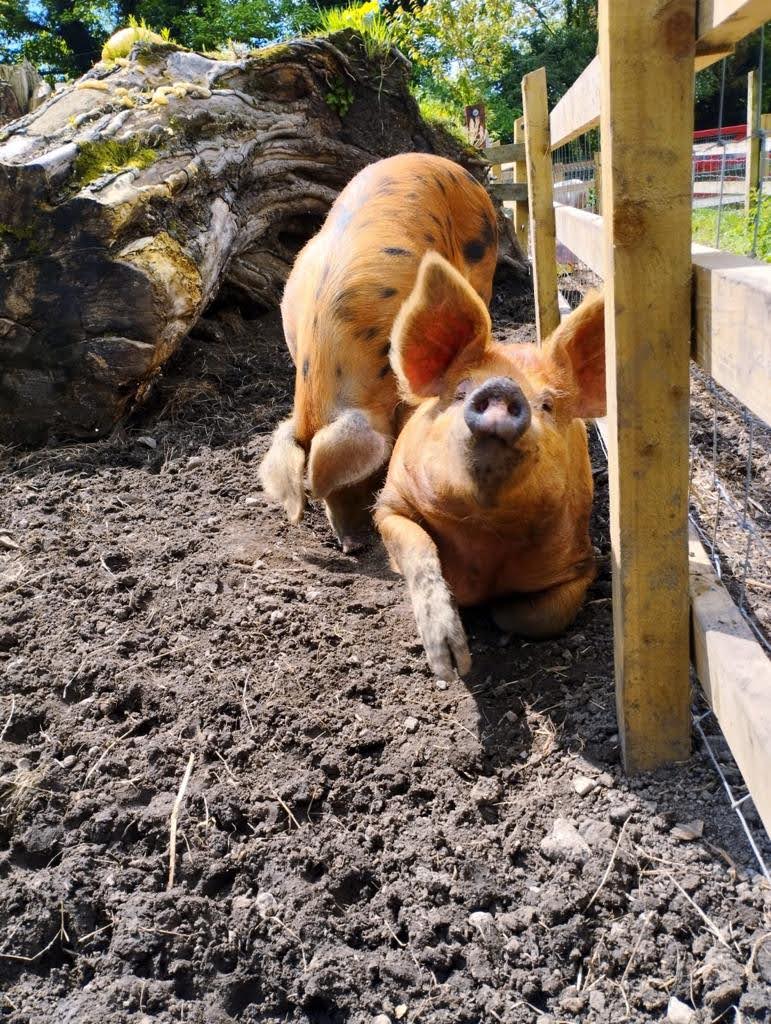
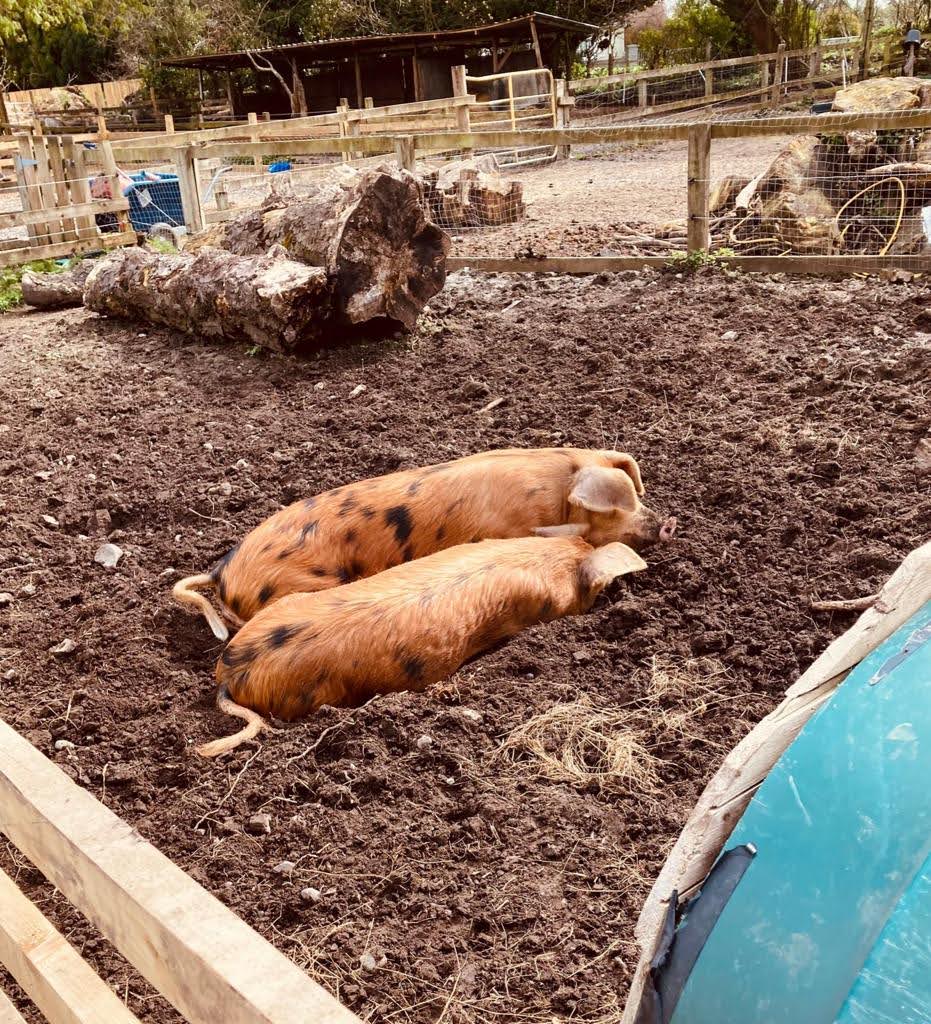
They are great friends and were quite happy at our farm but we are so delighted to say that they have been adopted by someone who has lots of land which includes a lovely forest area. We can think of no better home for these two wonderful pigs. They get to live the life that all pigs should have, running through the tall grasses, rooting in the undergrowth and living free and content in the natural world. Wishing both these guys a long and happy life.
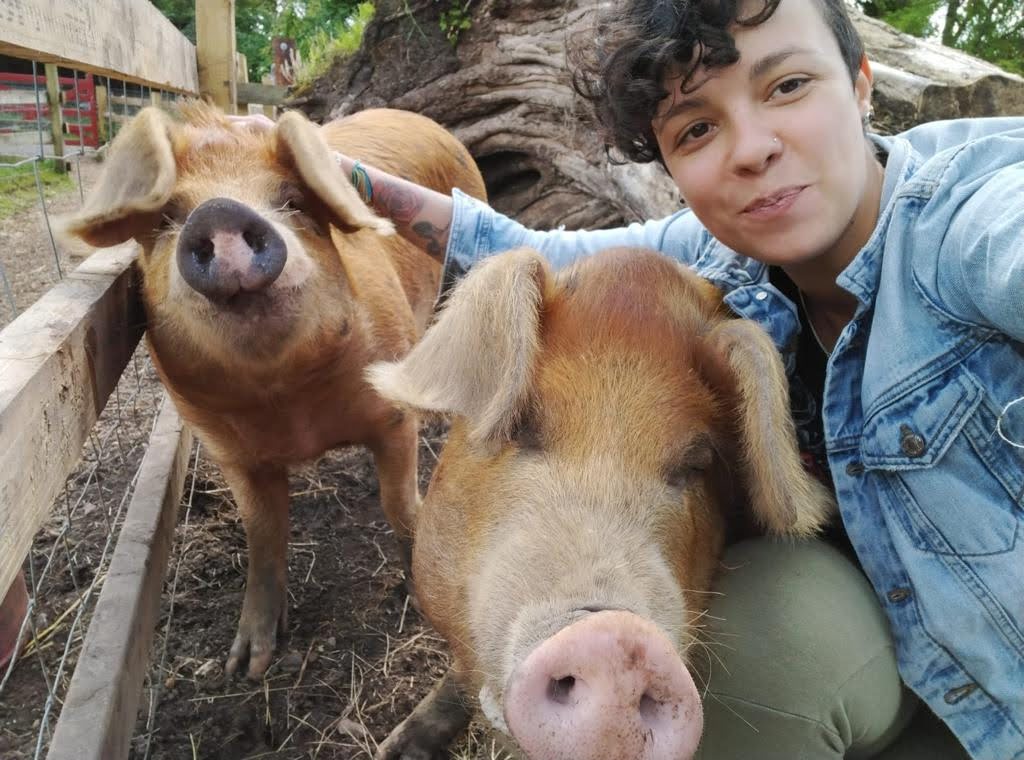
Departures – Oscar RIP
We hope you may remember Oscar, the large pot-bellied pig who came to us last October.
It’s with a heavy heart that we tell you he has passed away. Cathy and her team at My Lovely Pig Rescue (MLPR) made the difficult yet compassionate decision to have him put to sleep. He had developed a large, non cancerous growth under his chin attached to his trachea and this, along with his huge weight problem, was affecting his breathing in a way which was no longer sustainable for him. The type of growth could have developed anywhere and it often stays small but in Oscar it grew large because of his weight and he was just so unlucky that it grew in that area of his body. No operation was possible so he was kindly let go in his own bed, where he felt safe and loved and was surrounded by his friends.
You know when we say that old line ‘you’re as greedy as a pig,’ well it’s just not true. Pigs are by nature ‘rooters’, happiest when they have their snout deep in earth or vegetation where in years gone by they rooted for their dinner which would have consisted of low calorie roots and herbage. As the food back then was not high in fat they had to expend a lot of energy to get what they needed to stay alive. This is what their brains still tell them to do just as our human brains still release cortisol when we’re stressed even though there are no more large animals chasing us and it’s just our boss driving us crazy.
The problem is that nowadays pigs are fed a high energy, high protein diet because that is what is being sold in all the agricultural stores. There is no more rooting and foraging in their lives and so they eat all day if it’s there and gain weight quickly. Poor Oscar, though certainly loved by his previous owners, was served everything that piled on weight, including human food, and this coupled with little exercise was a disaster for him.
When we went to collect him initially, we couldn’t move him safely at first because of his weight and so a new feeding routine was set up for him where he was and a ramp was built for him to climb to access his food and so get him moving. After a few weeks and some weight loss we decided it was safe to transport him. His owner came with him to make sure he was okay. Everyone in Oscar’s life had tried to do right by him but none of them knew how to care for a pig and this is why we give pig training classes to all our adopters to ensure the health, safety and happiness of our pigs in their new home. Pigs are highly food motivated animals and so it’s very easy for them to become obese and hard for them then to try and lose the weight . We don’t know what weight Oscar was when he arrived as we don’t have a scale large enough to measure him. Transporting him to UCD just to weigh him would have been too stressful. When he died, he had lost quite a lot of weight but still weighed in at 246 kilos. He should have been only around 130 kilos.
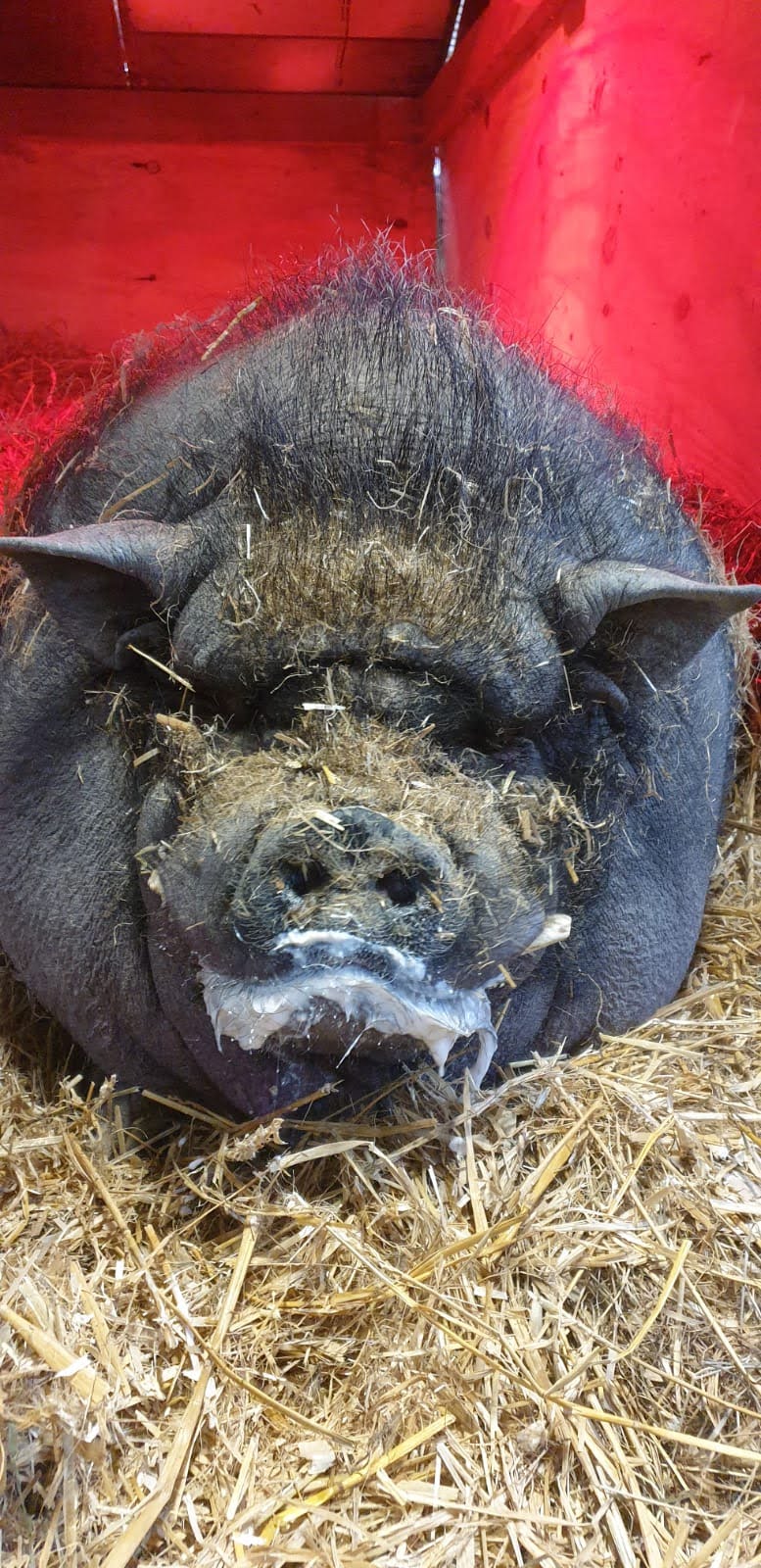
Our team came up with a dietary plan for him. We feed all our pigs a low calorie, high fibre diet with a small amount of protein. To help stimulate the rooting behaviour we soak beans, barley and oats and sprinkle it through their hay. We also give them some beet pulp to help give a feeling of satisfaction and fullness. Oscar’s body was under such huge stress so it was vital to get his weight off and his fitness level up but we had to do it safely. We removed all the excess sugars and fat from his diet and got him on a simple exercise plan. The weight did start coming off but there was just so much for him to lose.
Oscar’s weight even affected his ability to feed. He couldn’t just lean over his bucket and feed like the other pigs because he couldn’t breathe properly in that position anymore. Sometimes it was necessary to hand feed him which our team lovingly did. He loved his yogurt and would happily slurp away on that. Towards the end we had to syringe it into his mouth a little at a time. We also had to clean him, lifting the folds of fat to wipe between them to prevent any rashes forming. Oscar also had a condition called ‘fat blind’ where the fat on his face actually rolled over his eyes so he couldn’t see at all. Imagine his world for a moment and understand why our team felt such compassion for him.
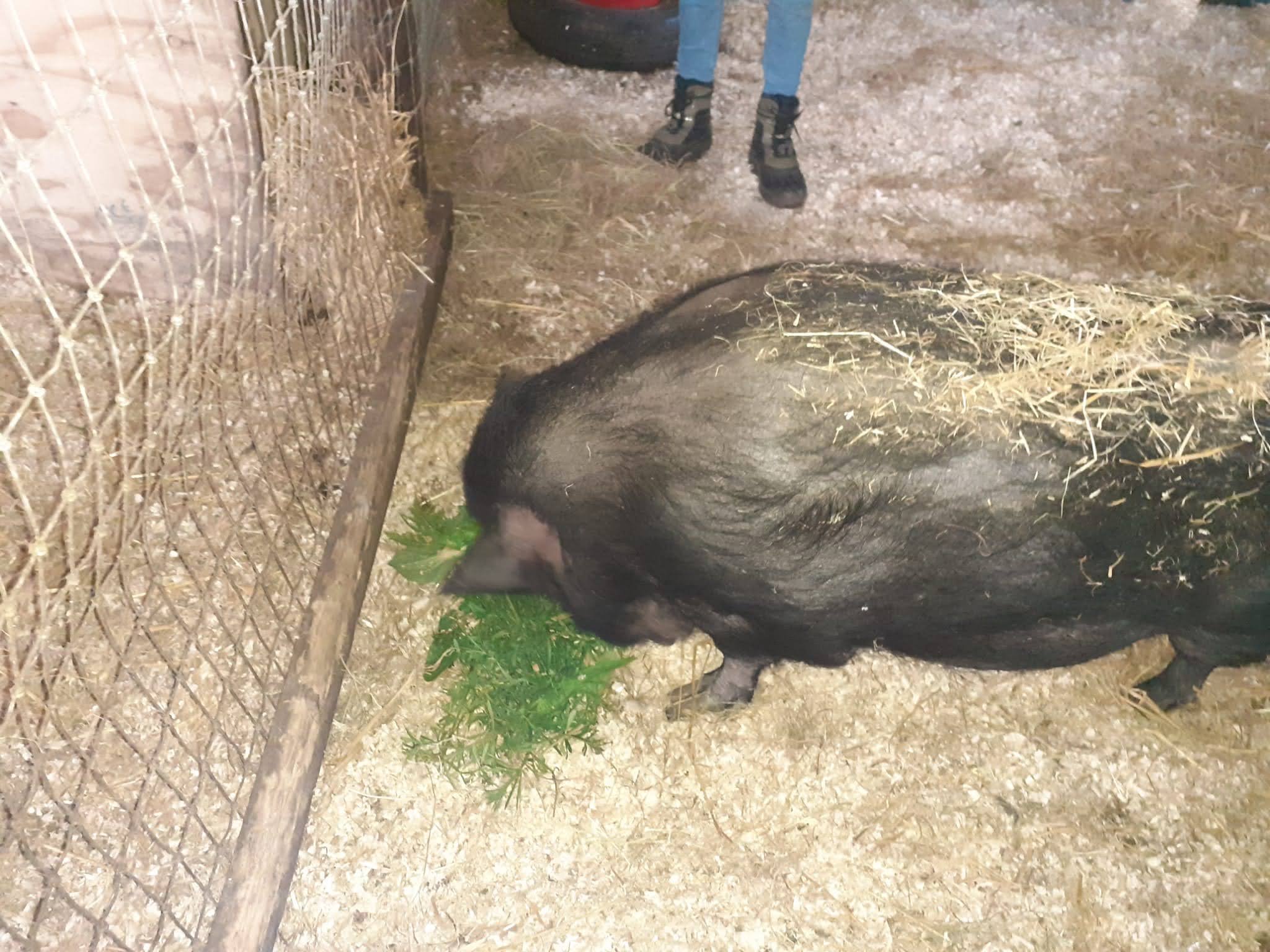
Oscar had lived alone for most of his life as far as we knew. So we paired him up with Daisy, one of our older, infertile females. When he died she was very sad and her own immune system took a knock. She got cystitis so we treated her and set her up in a nice cosy house with a heat lamp and gave her lots of TLC. You can see her in the video with Tarah who went and gathered some tasty grasses for her, dandelion, plantain, cow parsley and cleavers. All animals suffer as we do when they lose a friend and their immune systems often react just like ours.
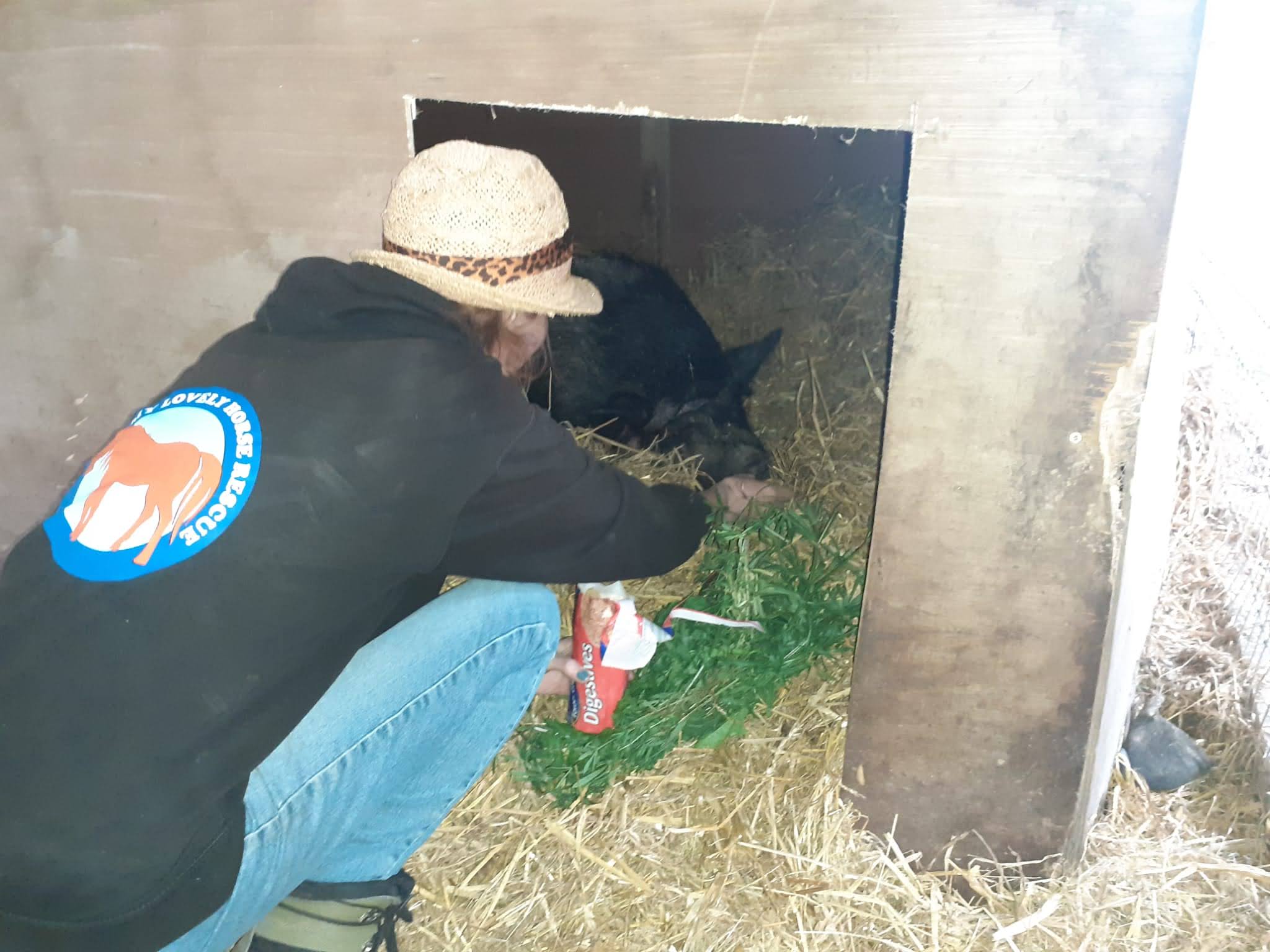
We have been asked sometimes why we took Oscar, why we just didn’t tell the owner to have him put to sleep. Well, we looked at Oscar and we saw someone who was kind and good and had never hurt anyone. We saw a creature who was not in control of his own life and who had been left down by the humans who were supposed to care for him. We saw someone who had a life and who we believed had a chance of getting better and who deserved that chance. It would have been so much easier for us to have walked away and just said get him euthanised but that’s not who we are. We look at animals the way we look at humans – living, breathing, feeling beings who always deserve a chance at life. We’ve learned a lot from Oscar as we do from all the animals who come into our care and that’s what helps us to be better all the time at what we do. That’s how human medicine has worked all over the centuries too. So we took Oscar and gave him a chance and in the end everything possible was truly done for him. When we let him go finally it was because we knew that the time had truly come and we really hope he knew just how much we cared for him and how much he meant to us.

We cannot quite believe we are halfway through 2022 already! We are often asked by our lovely and caring readers about the animals who have featured in our Day in the Life section and how they are getting on. We thought we’d take a look back over the last 6 months and provide a little update on the crew.
As many of our readers will know, Charlie featured in our January issue. An older man, he was being treated for a severe case of lymphangitis and he was responding slowly but surely. Sadly, on 10 March, Charlie’s breathing became laboured and our Vet John confirmed that Charlie was having heart problems. Charlie passed away peacefully that morning surrounded by his loving MLHR family. He was a very special man. We will never forget our gentle giant friend.
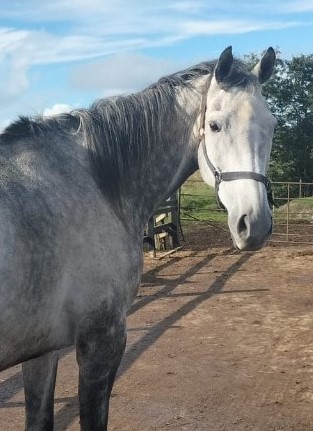
Sylvester Stallone featured in our February issue. He had suffered an allergic reaction while under sedation for gelding and we subsequently discovered that he was suffering from a bacterial infection in his lungs. In March, Sylvester was sedated by the UCD Veterinary team to undergo a scan and an endoscopy.
Our Vets detected fluid in his lungs but also in his gut. The scan also showed evidence of damage to his lungs and fluid and blood samples have been taken to determine the next course of action in his treatment.
Unfortunately it is sometimes a case of monitoring symptoms, his demeanour and intake of food and water. He is in good form and he has relocated to a pen with other ungelded young gentlemen. He loves their company but he also loves human attention – just look at how he perks up at the mention of his fan club?
Amanda featured in our March issue. She sadly and unexpectedly lost her baby girl in November last year. Bloods taken as part of her postnatal care highlighted problems with Amanda’s liver and after further investigation, she was diagnosed with liver disease. She had begun to lose patches of hair but as the video shows, her beautiful hair is growing back.
Towards the end of March, Amanda developed a cough that warranted further investigation and a scan of her lungs. The results showed signs of lung disease and inflammation so Amanda is on antibiotics for now and Ventipulmen which helps with respiratory difficulties.
Amanda is comfortable, eating and drinking well and she is not in pain. She continues to spend most of her time on the main yard with her foster son Stephen where she can be closely monitored.
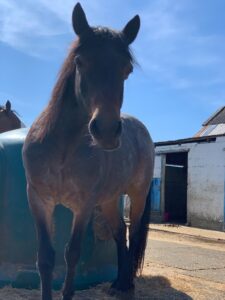
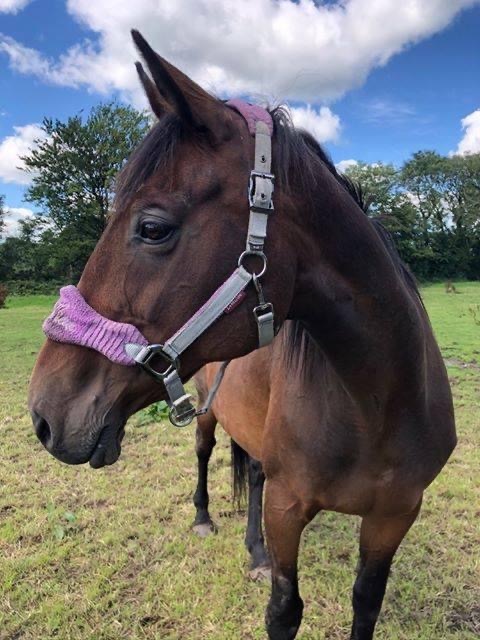
Isola and Abbey featured in our April and May issues respectively. These ladies get on very well together and spend a lot of time out in their dry-standing paddock or dozing beside each other in the summer sun. Isola will stay on a strictly-controlled diet to manage her laminitis but now that it’s under control she is thriving! Any flare up could cause her extreme pain and discomfort so she cannot be on grass. Her farrier work is continuing and she has just had 2 new front shoes put on and her back hooves trimmed to keep her comfortable
Abbey has also just had her feet done and after a difficult year, she is itching to get back into the field. She has a way to go yet so for now, she loves to stand at the paddock fence and converse with the ponies in the field. She is a character! She and Isola are the first to greet you at the gate and they keep a watchful eye on the yard. If anyone is up to mischief – they are the first to know about it! We are delighted with the recovery Isola and Abbey have made. They’ve been very patient patients!
Elvis featured in our December issue, technically outside our 6 month review range, but we are always asked about him and how he is progressing! Elvis is prone to bouts of “Dippity Pig Syndrome”, a neurological condition that can afflict him within a matter of hours. It causes extreme sensitivity and pain along his spine, and can cause him to temporarily lose the use of his hind legs. He was most recently diagnosed in October and he has been recovering slowly ever since.
Our farmies spend so much time with him and know him so well that they can immediately recognise when he is not himself. In early May they noticed he had suddenly become lethargic and was refusing food. Our Vet was called and we were shocked to be told that Elvis was critically ill with pneumonia.
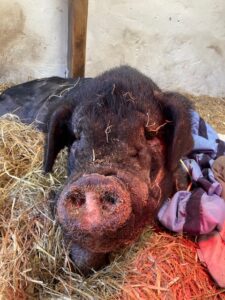
It was touch and go for a few days as we waited to see how Elvis would respond to antibiotics. He is a fighter and we were relieved to see a huge improvement in him just a few days. He is back to sitting up and enjoying being hand-fed his meals. Pneumona was an unexpected setback and it may delay his recovery from Dippity but we are here for him no matter what.
We would love nothing more than for all the animals in our care to get a clean bill of health. The reality of rescue is that we care for some incredibly sick and vulnerable animals with complex and often long-term illnesses. We are committed to doing everything we can to help these animals live comfortable, pain free and happy lives. Whatever their history, they want for nothing in our care.

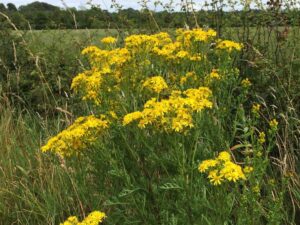
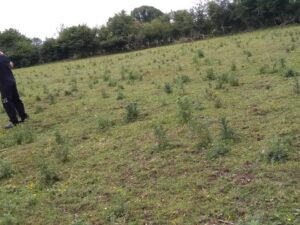
Equines can differentiate between tastes that are sweet, bitter, acidic and salty and they rely on their sense of taste when it comes to ingesting safe/unsafe foods. According to the British Horse Society “ragwort has a bitter taste as well as a warning smell during its growing and flowering periods and in situations other than absolute starvation, the horse will steer clear”. Ragwort is perhaps even more dangerous it its dried form as it loses its bitter taste and warning smell but fully retains its toxicity. Equines can be unknowingly poisoned by eating hay cut from ragwort-infested fields so it is vital to know the origin and composition of hay being used as feed.
So many horses in our care are dangerously underweight when they are rescued and have eaten whatever they could to stay alive. This was the case with Milo, a gentle grey cob rescued by MLHR in September 2019. He passed away 7 months later when he was just under three years of age. At the time of his rescue, it was evident that he had been eating ragwort for some time to survive. Unfortunately, by the time symptoms of poisioning manifested in him, irreparable damage had been done to his liver. Symptoms of ragwort poisoning can include loss of appetite and weight, and diarrhoea. The animal may become listless and develop jaundice or photosensitivity. Photosensitivity is caused by a build up of the chemical phylloerythrin in the blood leading to extreme sensitivity to ultraviolet sunlight and the development of painful hives, redness, cuts and blisters on the skin.
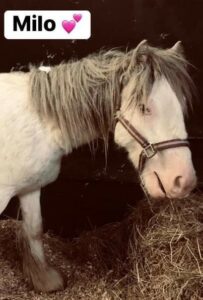
Milo was admitted to Lissadell Equine Hospital on a number of occasions. He was given antibiotics and fluids which he seemed, for a time, to be responding to. We tried everything to help filter toxins from his liver, adminstering Milk Thistle seed powder, Equine Liver Flush and Liver Tonics but despite the best Veterinary care and round-the-clock monitoring, Milo was critically ill and we had to make the heart-breaking decision to let him go. His death was unncessary and could easily have been prevented.
Under the Noxious Weeds Act, 1936, the DAFM is responsible for overseeing the control and prevention of the spread of certain weeds. It is an offence for the owner/occupier of lands not to prevent their growth and spread.
Some landowners may opt to cut Ragwort before it flowers or plough the field and then rest the land, or use herbicides. At MLHR we take the manual approach and use special rag-forks to dig plants out by the roots. It can take two consecutive years, sometimes more to eradicate ragwort. It is labour intensive and we are lucky we can call upon our volunteers to do this in shifts and dispose of it properly.
Anyone responsible for an animal must recognise and remove any threat to their welfare. Members of the public can notify the DAFM of noxious weed growth and threats to animal welfare. If you are know of animals being left to graze in pastures where ragwort is thriving, you can report the location to the Department by completing the Noxious Weeds Report Form 2022 and emailing it to [email protected] We all have a duty of care to speak up for those who cannot speak up for themselves.

The beauty of My Lovely Charity Shop is that you never know what you might find! We are grateful for all donations but it’s certainly not everyday that a signed Celtic FC Home Jersey from none other than sporting legend Henrik Larsson, finds its way to our door.
This jersey came to us framed and complete with a Certificate of Provenance and we were incredibly grateful to be able to put it up for auction and to raise over €450 for My Lovely Horse Rescue.
We would like to say a big thank you to the original owner who, in full knowledge of its value, donated this rare and special item to My Lovely Charity Shop so that proceeds would support animals in need.
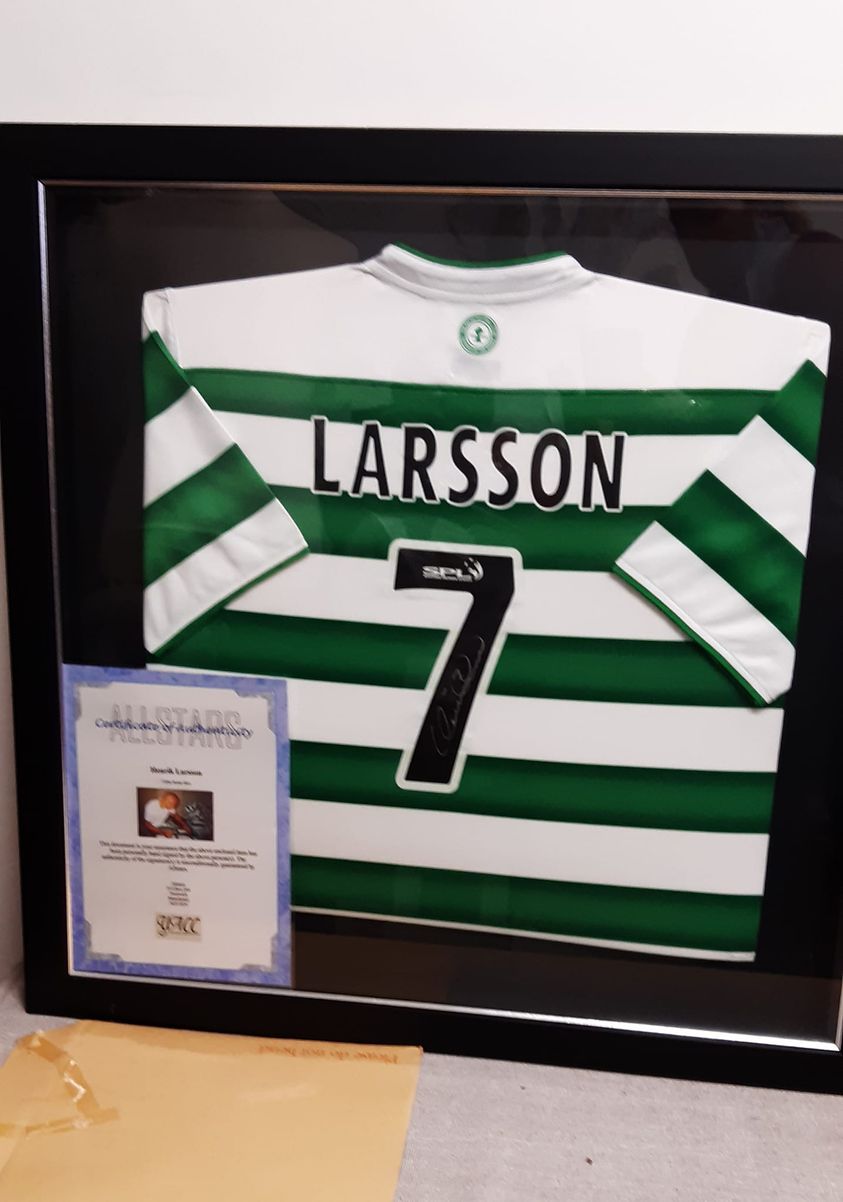
Upstairs in the Tack Shack we’ve opened a new wing of sorts to cater for the pawed people among us! We have a selection of dogs leads, harnesses, collars and coats in a variety of colours and sizes for a fraction of what you’d pay elsewhere.
For the latest news from the shops, please follow My Lovely Charity Shop and My Lovely Tack Shack on Facebook. If you fancy a leisurely browse, drop in to 81 JKL Street, Edenderry, Co. Offaly. Opening hours are Tuesday to Friday 10.30 a.m. – 4.30 p.m and Saturday from 10 a.m. to 3.00 p.m.
We are looking for Volunteers to join our amazing team at My Lovely Charity Shop! If you are interested and can spare a day per week or per month, especially on a Saturday from 10 a.m. to 3 p.m., please get in touch on 086 844 5076 – we would love to hear from you!
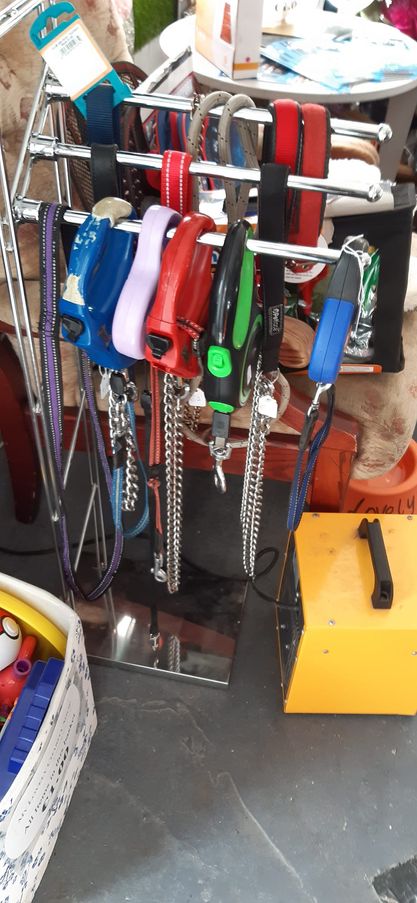
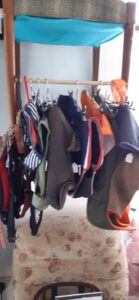

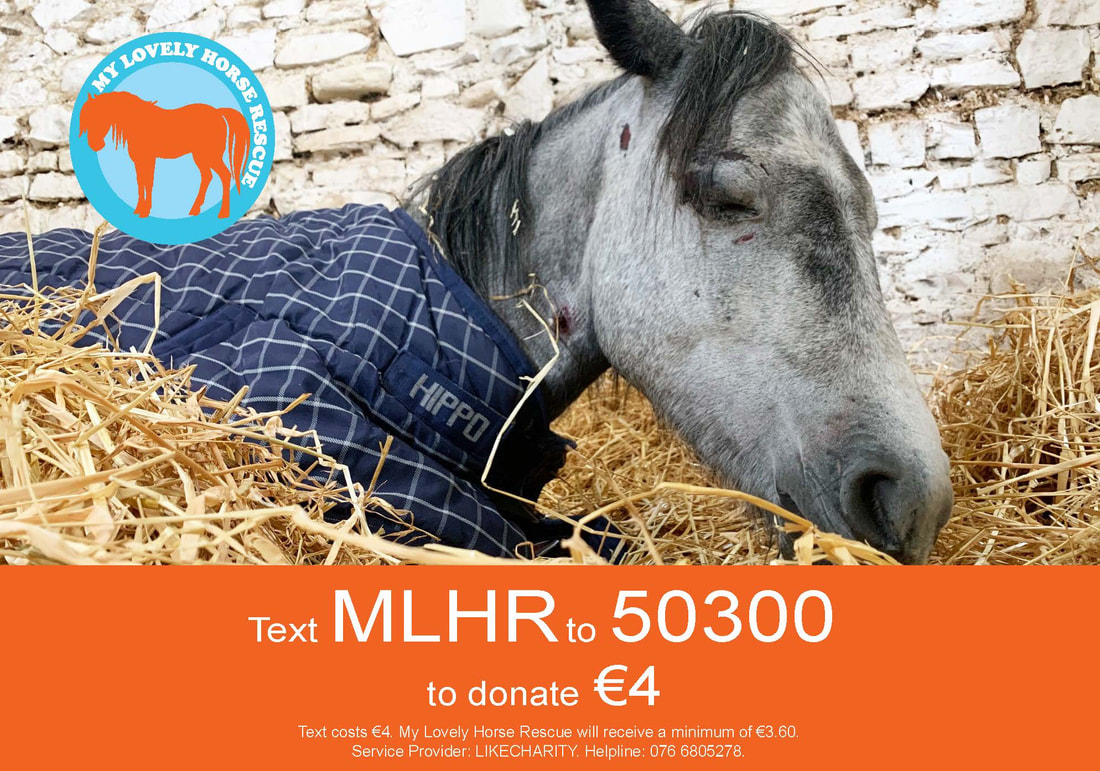
We are relieved to have been able to rescuing another 12 dogs from the pound in May but we’ll never forget the fear and confusion in these dogs’ eyes when we walked through the door to meet them. Sadly, many of the dogs rescued in recent months are about 2 years old.
When it was clear that Covid restrictions would be in place for some time, the demand for dogs sky-rocketed. We were contacted daily with dog-adoption enquiries. Our home-check procedures are in place to ensure that animals secure homes with people who understand the long-term commitment involved and who are prepared to invest the time, energy and patience into an animal’s rehabilitation.
We were horrified to learn that illegal puppy farms thrived during Covid and that so many people willingly paid huge sums to unscrupulous breeders to prop up this cruel industry. We worried about what would happen to these puppies when human lives began to get back on track. We are still in the midst of a Pandemic, but as schools and workplaces have returned to some normality, our worst fears have been realised and we are seeing dogs bought as puppies being surrendered to pounds all over Ireland. They have been deemed surplus to human requirements and they have been left to pay the price – with their lives.
Our message at MLHR has always been Adopt Don’t Shop. We are so grateful for any donation you can afford, but if you are not in a position to adopt, foster, donate or volunteer your time right now, you can still make a huge impact.
We know that educating others will be the key to combating animal welfare problems in Ireland. We are privileged to be asked to speak to members of the Oireachtas, Gardaí, County Councils, Professional bodies, School students, University students. Conversations cost nothing and by sharing our stories and campaigns, talking about our work, you can champion our vision and support animals by using your voice, the most important tool you have. Thank you for your support.
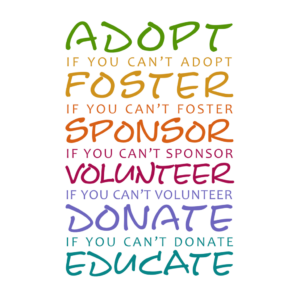

Our farmies work from morning until night to keep the farms running and all the animals cared for. Between cleaning, feeding preparation, medical treatments and call outs, they capture so many moments on camera, from the interesting, to the funny and tender. Here are some ‘behind the scenes’ videos and photos from the farm this month. Enjoy!
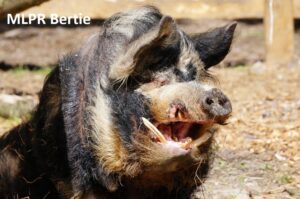
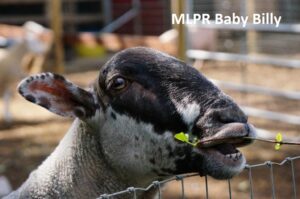
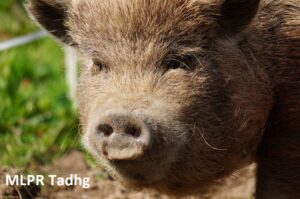
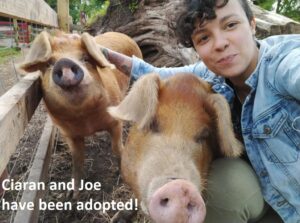
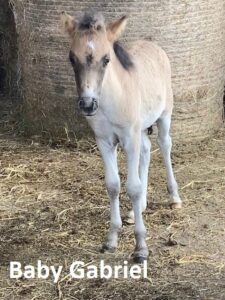
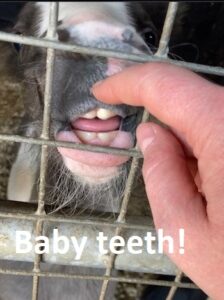
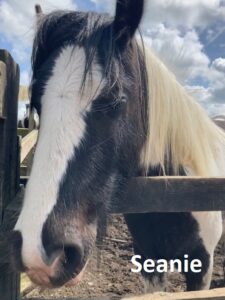
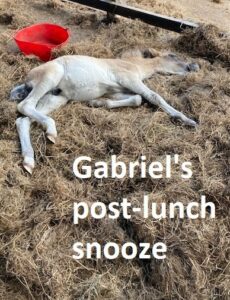

It’s terrifying to witness an act of cruelty against a defenceless animal or to see an animal running loose in the street perilously close to oncoming traffic. In the heat of the moment, it can be hard to know what to do, who to contact, and to know what information will be important to share. MLHR is on hand 24/7 all year round to be the voice for animals. Every day we receive reports from all over Ireland of animals (of all species) who are straying, who have been abandoned, or who have been the victims of intentional neglect and abuse.
Under the Animal Health and Welfare Act 2013, only Authorised Officers (An Garda Síochána; Department of Agriculture, Food and the Marine Inspectors; and County Councils/Local Authority Inspectors) are permitted to seize animals, to enter private property, to carry out investigations or to bring prosecutions.
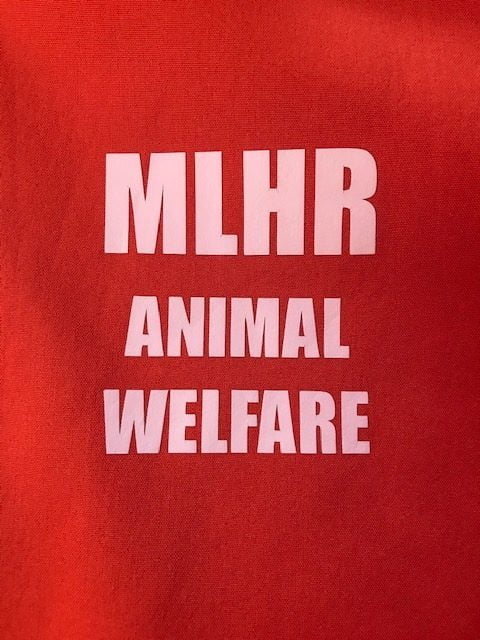
MLHR assists Authorised Officers with their work and for this reason, it is vital that members of the public reporting incidents to MLHR also report to the relevant Authorised Officers so that we can liaise with and help them move animals out of harm’s way and into safety.
What you can do
1. Provide us with a description of the animal(s) at risk and the nature of the incident.
2. Send us a pin drop or accurate description of the location.
3. Take Photographs/Video footage but only if it is safe to do so.
4. Tell us which Authorised Officer or Garda station you have contacted.
How to make contact with Authorised Officers
• An Garda Síochána – A list of Garda stations is available online at https://www.garda.ie/en/contact-us/station-directory/
• Local Authorities (for incidents on Public land) https://www.gov.ie/en/help/departments/#local-authorities
• ISPCA for emergencies call 1890 515515 (Monday to Friday 9 a.m. – 5 p.m.). Welfare concerns can http://www.ispca.ie/cruelty_complaint
• Department of Agriculture, Food and the Marine – for incidents on private land phone 01 607 2379 or 0761 064 408 or email [email protected]

Missed out on any of our old newsletters? No worries!
Click the button to browse through all of our newsletters!

Thank you for all the great work you do!